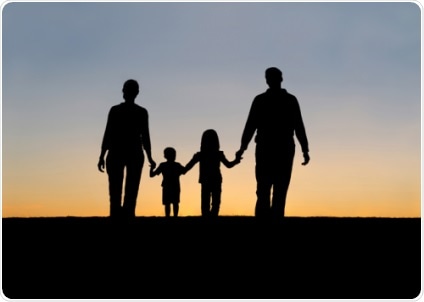Jul 13 2017
The rise in direct-to-consumer DNA testing has increased the likelihood of individuals unexpectedly finding out they are donor-conceived, raising important ethical questions, warns social scientist Dr Marilyn Crawshaw from the University of York.

In the commentary, published in Human Fertility, it is highlighted that, due to the rise in direct-to-consumer DNA testing, there is now a need for fertility services to alert prospective parents to the possibility that if they decide not to tell their children of their donor-conceived origins themselves, they may later learn of them in unplanned ways due to direct-to-consumer DNA testing. Equally, it is highlighted that donors should be informed that their anonymity under UK law cannot be guaranteed due to the rise in these services.
As a result of direct-to-consumer DNA testing, Crawshaw recommends the genetic testing industry should provide information and support to anyone who is affected by uncovering unexpected information.
“The science of DNA is fast moving and we cannot ignore it. As a result, as well as parents deciding whether to tell their donor-conceived children of their origins, we now have adult children having to decide whether to tell their parents that they themselves were donor-conceived. Secrets have become even more dangerous” said author Dr Crawshaw.
There have been reports for some time of donor-conceived individuals successfully searching for their donor or donor-related siblings. However, the experiences described in this commentary show that individuals of all ages may unintentionally discover that they were donor-conceived if they or their family members take DNA tests for unrelated reasons.
Many of the users of these direct-to-consumer DNA tests use the services to find out their family’s health history, or to discover who their ancestors were, and finding information about their or their relatives’ donor conception origins is wholly unexpected.
As the cost of direct-to-consumer DNA testing drops, and with over 3 million people already having used sites such as 23andMe and AncestryDNA, there is a strong likelihood of am uptake in genetic testing - leading to many more instances of people uncovering unexpected genetic relationships.
The commentary illustrates the challenges and rewards faced by three older women (and their families) on learning not only of their donor conception origins but also their genetic relationship to each other and 16 other donor-related siblings.
Editor in Chief of Human Fertility Professor Allan Pacey from the University of Sheffield said:
Dr Crawshaw’s commentary raises some important issues and challenges. Healthcare professionals involved in donor conception and direct-to-consumer DNA testing services need to take notice of these issues and make sure they give appropriate information and support to their clients.